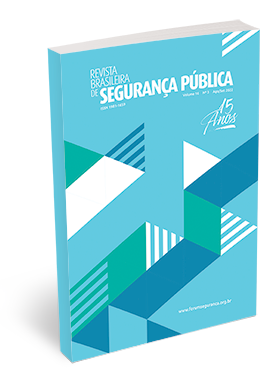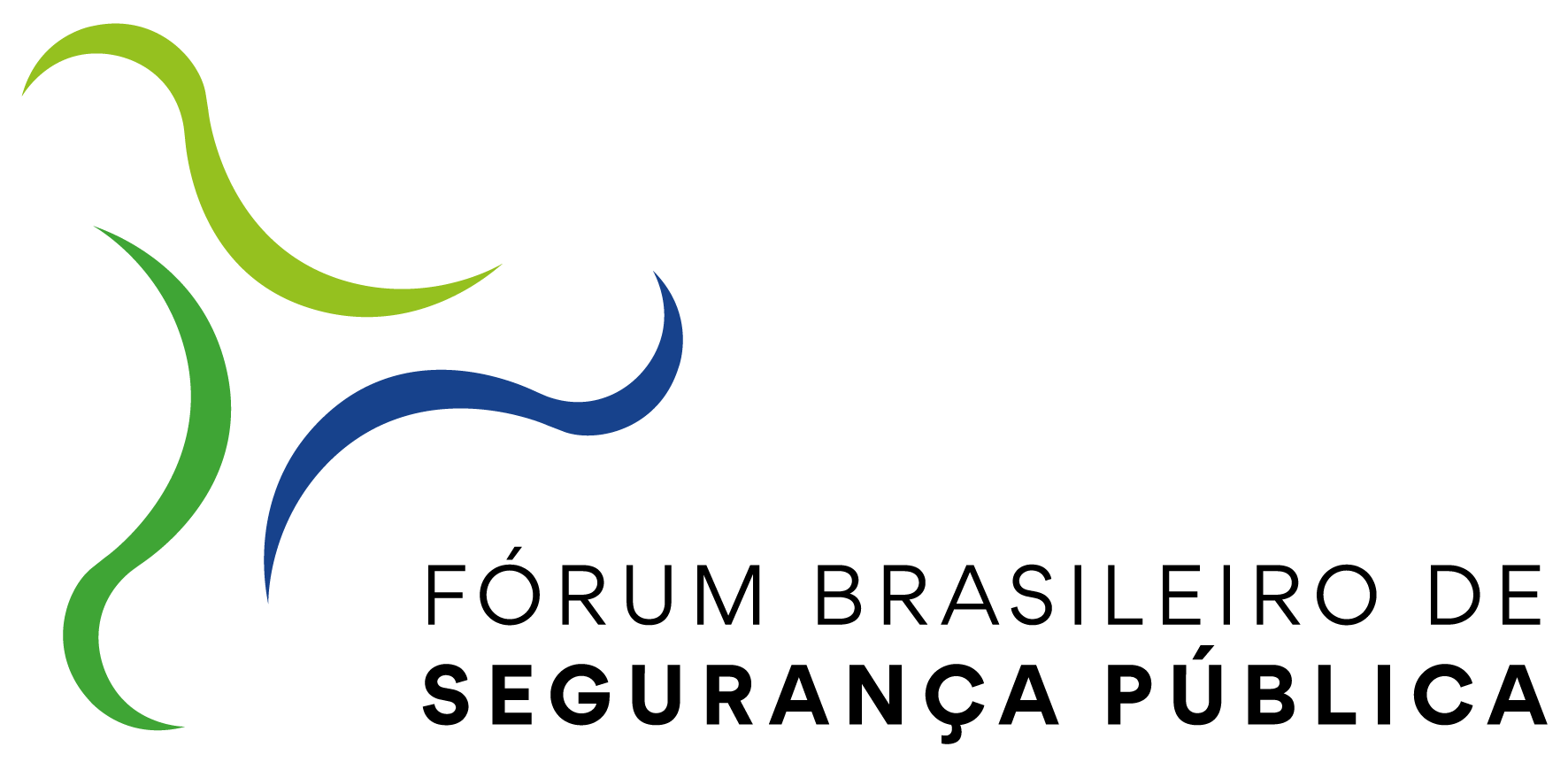Accountability and electronic government in the context of Covid-19
the case of the National Penitentiary Department site
DOI:
https://doi.org/10.31060/rbsp.2022.v16.n3.1613Keywords:
Accountability, Depen, COVID-19, Electronic Government, Social participationAbstract
In a context of international health emergency, the issue of the interaction of accountability, Information Technology and Communications (ICT) tools and social participation becomes fundamental for the maintenance of the democratic structure and north of action for the state apparatus. In this scenario, this article seeks to analyze whether the initiative to use a website by the National Penitentiary Department (Depen) is characterized as an Electronic Government tool and a vehicle of accountability and transparency, with social participation, in the fight against COVID-19 in the Brazilian prison system.
Downloads
References
ALVES, M. A.; COSTA, M. M. da. Colaboração entre governos e organizações da sociedade civil em resposta a situações de emergência. Revista de Administração Pública, v. 54, n. 4, p. 923-935, ago. 2020.
ANAS, M.; OTHMAN, I.; FATHEY, M. E-government adoption: a systematic review in the context of developing nations. International Journal of Innovation, v. 8, n. 1, p. 59-76, 2018.
BAQUERO, M. Democracia formal, cultura política informal e capital social no Brasil. Revista Opinião Pública, v. 14, n. 2, p. 380-413. Campinas, 2008.
BRAGA, L. V.; ALVES, W. S.; FIGUEIREDO, R. M. da C.; SANTOS, R. R. dos. O papel do Governo Eletrônico no fortalecimento da governança do setor público. Revista do Serviço Público, v. 59, n. 1, p. 5-21, jan./mar. 2008.
BRAGA, L. V.; GOMES, R. C. Participação eletrônica e suas relações com governo eletrônico, efetividade governamental e accountability. Organizações & Sociedade, v. 23, n. 78, p. 487-506, 2016.
COELHO, F. de S.; CORRÊA, V.; LISBOA, R. L.; RESCH, S. A Casa de Máquinas da administração pública no enfrentamento à COVID-19. Revista de Administração Pública, v. 54, n. 4, p. 839-859, 2020.
CORREA, J. R. L.; NOSSA, V. Fatores que Influenciam a Utilização de Sistemas de Monitoramento E-Government no Brasil. Revista de Educação e Pesquisa em Contabilidade (REPeC), v. 13, n. 3, p. 258-273, 2019.
DA SILVA, L. A.; MAGNUS, S.; SILVEIRA, M.; MACIEL, C. Designing help system for e-GOV websites: A Brazilian case study. Information Polity, v. 18, n. 3, p. 261-274, 2013.
DEPEN, DEPARTAMENTO PENITENCIÁRIO NACIONAL. Home.
DEPEN, DEPARTAMENTO PENITENCIÁRIO NACIONAL. COVID-19: Ações contra a pandemia.
DEPEN, DEPARTAMENTO PENITENCIÁRIO NACIONAL. COVID-19: Painel de monitoramento dos sistemas prisionais.
DEPEN, DEPARTAMENTO PENITENCIÁRIO NACIONAL. Coronavírus no Sistema Prisional.
DEPEN, DEPARTAMENTO PENITENCIÁRIO NACIONAL. Aquisições emergenciais COVID-19.
DEPEN, DEPARTAMENTO PENITENCIÁRIO NACIONAL. Prevenção do Coronavírus no Sistema Prisional.
DEPEN, DEPARTAMENTO PENITENCIÁRIO NACIONAL. Ministério da Saúde atende solicitação de vacinação antecipada dos profissionais de segurança pública.
DEPEN, DEPARTAMENTO PENITENCIÁRIO NACIONAL. Ações do Departamento Penitenciário Nacional.
DEPEN, DEPARTAMENTO PENITENCIÁRIO NACIONAL. Aquisições emergenciais COVID-19.
DEPEN, DEPARTAMENTO PENITENCIÁRIO NACIONAL. Relatório Analíticos Depen.
DOS-REIS, M. C. A.; ISIDRO-FILHO, A. Inovação em Serviços e a Coprodução no Setor Público Federal Brasileiro. Administração Pública e Gestão Social, v. 12, n. 1, 2020.
FACHIN, J.; ROVER, J. A. Governo eletrônico – E-GOV: análise dos serviços disponíveis no portal do Governo do Estado da Bahia. Navus - Revista de Gestão e Tecnologia, p. 40–50, 2015.
FACCHINI, E. et al. Brazil in Search of Transparency E-Gov. Adcaij: Advances in Distributed Computing and Artificial Intelligence, Journal, v. 5, n. 1, p. 63, 2016.
FERNANDES, G. A. A. de; PEREIRA, B. L. S. Os desafios do financiamento do enfrentamento à COVID-19 no SUS dentro do pacto federativo. Revista de Administração Pública, v. 54, n. 4, p. 595-613, ago. 2020.
FOX, J. A. Social accountability: what does the evidence really say? Elsevier. World Development, v. 72, pp. 346-361, mar. 2015.
FURTADO, U. DE M.; JACINTO, K. E-gov e sua importância na desburocratização da administração pública. HOLOS, v. 5, p. 56, mar. 2011.
GELMINI, L.; MINUTIELLO, V.; TETTAMANZI, P.; COMOLI, M. Rhetoric, accounting and accountability: Covid-19 and the case of Italy. Sustainability, v. 13, n. 8, 7 abr. 2021.
HIKO, A.; WANG, A. H. E. Out-of-Control COVID-19 Pandemic Hampers the Nationalism. Political Studies Review, v. 19, n. 2, p. 294-301, mai. 2021.
LIMA FILHO, R. N.; SIMÕES, P. E. M.; SILVA, M. S. da; CHAGAS, S. B. Accountability e Governo Eletrônico: Uma Análise Sobre a Participação Popular. Revista Pensamento Contemporâneo em Administração, v. 5, n. 2, p. 17-32, 2011.
MACHADO, S.; GOLDENBERG, S. Sharpening our public health lens: advancing im/migrant health equity during COVID-19 and beyond. International Journal for Equity in Health, v. 20, 2021.
MANSOOR, M. Citizens’ trust in government as a function of good governance and government agency’s provision of quality information on social media during COVID-19. Government Information Quarterly, v. 38, n. 4, out. 2021.
MUSTAFA, A.; IBRAHIM, O.; MOHAMMED, F. E-government adoption: a systematic review in the context of developing nations. v. 8, n. 1, p. 59–76, 2018.
O'MALLEY, P & Rainford, J & Thompson, Alison. (2009). Transparency during public health emergencies: From rhetoric to reality. Bulletin of the World Health Organization. 2009.
PARRADO, S.; GALLI, D. Intergovernmental veto points in crisis management: Italy and Spain facing the COVID-19 pandemic. International Review of Administrative Sciences, v. 87, n. 3, p. 576-592, set. 2021.
PAULA, A. P. P. de. Administração pública brasileira entre o gerencialismo e a gestão social. Revista de Administração de Empresas, v. 45, n. 1, p. 36-49, 2005a.
PAULA, A. P. P. de. Por uma nova gestão pública: limites e potencialidades da experiência contemporânea. Rio de Janeiro: Editora FGV, 2005b.
PEÑA-RAMOS, J. A.; RECUERO-LÓPEZ, F.; SÁNCHEZ-BAYÓN, A.; SASTRE, F. J. Evaluation of Spanish Health System during the COVID-19 Pandemic: Accountability and Wellbeing Results. International Journal of Environmental Research and Public Health, v. 18, n. 24, dez. 2021.
PINHO, J. A. G. de. Investigando portais de governo eletrônico de estados no Brasil: muita tecnologia, pouca democracia. Revista de Administração Pública, v. 42, n. 3, p. 471-493, 2008.
PRZEYBILOVICZ, E.; CUNHA, M. A.; COELHO, T. R. O desenvolvimento dos estudos sobre governo eletrônico no Brasil: um estudo bibliométrico e sociométrico. Revista Eletrônica de Sistemas de Informação, v. 14, n. 3, p. 3-24, 2015.
RAMPELOTTO, A.; LÖBLER, M. L.; VISENTINI, M. S. Avaliação do sítio da Receita Federal do Brasil como medida da efetividade do governo eletrônico para o cidadão. Revista de Administração Pública, v. 49, n. 4, p. 959–984, 2015.
RELYEA, H. C. E-gov: introduction and overview. Government Information Quarterly, v. 19, n. 1, p. 9–35, 2002.
RODRIGUES, K. F.; CARPES, M. M.; RAFFAGNATO, C. G. Preparação e resposta a desastres do Brasil na pandemia da COVID-19. Revista de Administração Pública, v. 54, n. 4, p. 614-634, 2020.
SILVA, S. M.; PIRES, V. Desafios da comunicação pública em contexto de pandemia. Estadão, Blogs, Gestão, Política e Sociedade, 6 mai. 2020.
SOBRAL, F.; CARVALHO, J.; ŁAGOWSKA, U.; FURTADO, L. M. G. P.; GROBMAN, M. Melhor prevenir do que remediar: o sensemaking da liderança nos tempos da COVID-19. Revista de Administração Pública, v. 54, n. 4, p. 758-781, 2020.
ZAKIR HOSSAIN, A. N. M. Local government response to COVID-19: Revitalizing local democracy in Bangladesh. International Journal of Sustainable Development and Planning, v. 16, n. 4, p. 701-712, 26 ago. 2021.
ZITTEI, M. V. M.; FERNANDES, F. C. E-Serviços no Governo Eletrônico: Análise Bibliométrica de Artigos Internacionais. Future Studies Research Journal: Trends and Strategies, v. 7, n. 2, p. 43-62, 2015.
Published
How to Cite
Issue
Section
License
Copyright (c) 2022 Revista Brasileira de Segurança Pública

This work is licensed under a Creative Commons Attribution 4.0 International License.
Licensing
The Brazilian Journal of Public Security uses the Creative Commons License as a form of licensing for its published works. The license used follows the CC BY 4.0 - Attribution 4.0 International model.
To see the permitted rights please go to the full licence or to our Copyright and Licensing page.



